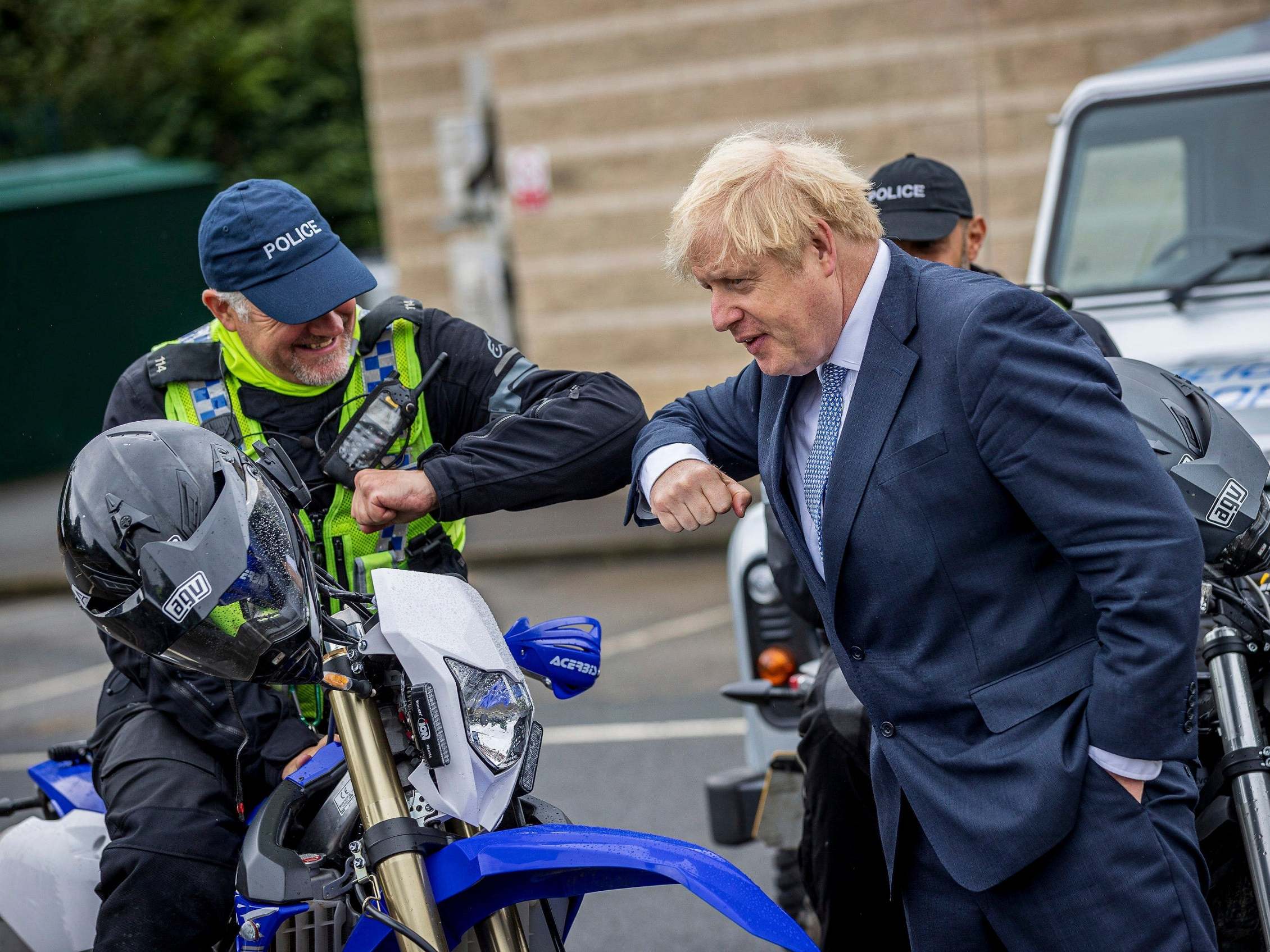Boris Johnson may be overcompensating for early failings on Covid but he has no choice
The clampdown on households meeting inside covers a much wider area than Johnson envisaged when he christened plans for local lockdowns as his ‘whack-a-mole’ strategy, writes Andrew Grice


Only two weeks after suggesting there could be a “significant return to normality by Christmas”, why has Boris Johnson imposed new restrictions on 4 million people in the north and adopted a hardline stance on foreign travel?
I suspect the prime minister is overcompensating for his mistakes at the start of the coronavirus crisis. He knows he was too slow to order the national lockdown in March, which some of his scientific advisers now admit cost thousands of lives. He came too close to conceding the point a week ago, telling the BBC there were “very open questions” and saying that “maybe there were things we could have done differently”. The government also avoided quarantine for UK arrivals until June, with scientists arguing it was too late to do so in April once the virus had already been imported and spread.
Johnson is now making up for lost time, and has gone to the other end of the spectrum. He doubtless hopes it will give him some protection at the public inquiry he admits is coming but, crucially, has delayed until an unspecified future date to give himself a chance to show he has put right his early mistakes. That would be his new “mitigation strategy”.
The more cautious new line is aimed at preventing a resurgence of the virus in the UK. Downing Street and ministers have deliberately talked up the prospect of the “second wave” seen in parts of Europe coming to the UK in a couple of weeks. It’s slightly misleading; a more accurate description would be a second spike during the first wave, since the virus has not gone away.
Behind the scenes, the bigger worry of ministers and their advisers is a winter crisis for the NHS caused by a toxic mix of flu and coronavirus. The battle to prevent the health service being overrun might have to be fought all over again.
They are erring on the side of caution now in part to send a dramatic message that the virus has not been defeated, that people must keep up their guard, amid evidence that too many are ignoring social distancing rules — said to be a big factor in the rise in infections in the north. The clampdown on households meeting there covers a much wider area than Johnson envisaged when he christened plans for local lockdowns his “whack-a-mole” strategy. It is a regional partial lockdown.
The same desire to issue a wake-up call led to Johnson overruling ministers who wanted to exempt the Canaries and Balearics from the restrictions on Spain, even though the islands have low infection rates.
Several Conservative MPs are furious at the surprise turn of events. They thought they had won the “economy versus health” argument when Johnson urged employers to consider how to bring back people working at home to their offices and relaxed the advice on using public transport. Some Tories, particularly those whose constituents are affected by the new curbs, think Johnson is in panicky, flip-flop mode. They grumble that current hospital admission and death rates do not justify such draconian actions, and it’s true that the rise in reported infections partly reflects greater testing capacity.
Johnson is stuck on a see-saw: tilt too far on protecting health and the economy suffers; tilt back to the economy and there’s a spike in coronavirus cases. Getting the balance right and keeping the see-saw level is very difficult.
The government is right to rely on the precautionary principle and should now stick to that, even if it means facing down the Tory “economy first” brigade. Changing tack repeatedly would send out even more mixed messages, which would undermine the government’s efforts to revive the economy. With confidence dented, many people working at home will be reluctant to return to their offices. But, as London’s largely empty streets show, that is causing a real crisis for city-centre cafes, bars and restaurants that rely on these workers.
More hard choices lie ahead. To prioritise the reopening of schools in England in September, as ministers must to correct another of their previous missteps, they might need to impose other curbs to keep the R number (the average number of people infected by someone with the virus) below one. Ministers have long feared what one described as “the choice between keeping schools and pubs open”. It might just be approaching.
Johnson’s summer optimism didn’t last long; he now hopes the restrictions will be lifted by “the middle of next year”. Summer was supposed to provide a breathing space to learn lessons and put defences in place for the winter. Yet, as this week’s events showed, there is no respite.
Amid so much uncertainty, one thing is clear: we will not be back to normal by Christmas.
Join our commenting forum
Join thought-provoking conversations, follow other Independent readers and see their replies
Comments